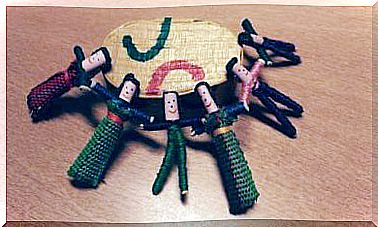Saying Yes When We Mean No: Why Do We Do This?

We often say yes when in reality we would like to say no. Why do we do this? What is happening to us? Are we unable to express our true desires? In this article, we’ll try to answer that question: Why say yes when we mean no? Behind this paradox, we find different causes that have to do with assertiveness.
Andre Salter (1940) defined the concept of assertiveness as a personality trait. Specifically, he defined it as “the expression of personal rights and feelings”. In other words, assertiveness includes the ability to say “no” when we really mean no.
Salter’s research came to the following conclusion: Circumstances influence the likelihood of being assertive. This does not prevent that there are people with a greater tendency to assertiveness or that this skill cannot be learned.
Thus, assertiveness includes defending our rights and our needs, and the ability to express our wishes sincerely, without hurting or hurting anyone, in a polite but forceful manner. In the words of everyday language, it implies not “letting someone step on you”, without losing your reason and using inappropriate forms.
Why are we assertive only on certain occasions or with certain people? What makes us non-assertive, that is, why do we tend to say yes when we want to say no? We will try to clarify these issues in the following article.

Saying yes when we want to say no: why does this happen?
As we have seen, resolving this issue has a lot to do with assertiveness. However, what makes us not express what we really want in certain situations? Let’s look at the factors that can explain this:
lack of assertiveness
There are people who have a knack for expressing their opinions and desires with freedom, clarity and sincerity. When they are pressured to do something they don’t want to do, they simply say “no”. However, people who don’t have this ability naturally, or who haven’t worked it so hard, tend to say yes when they want to say no.
It can be said that this is the great cause that would involve the following explanations, since we are not assertive for some reason, as we will see below. Behind this hide fears, insecurities, lack of self-esteem…
Afraid of what they will say or think
When we are overly concerned about the opinions of others, we tend to accept things we really don’t want. In a way, we fear being judged if we don’t think the same way as others, or we’ll look bad, we’ll be criticized, etc.
This can be changed by working especially on our self-esteem and increasing our ability to be who we really want to be. The reality is that without good self-esteem, it doesn’t matter what others think or say about us, because we will always need more. Don’t forget that self-love is the only one that will always accompany us!
search for acceptance
Who do you want to please? People end up accepting situations (from simple to complex) that they don’t like and, in turn, gaining the approval of others.
To some extent, wanting to be loved by others is very natural; we seek to feel accepted and loved because we are social beings. In other words, not only do we seek the other’s love when we say yes to something we don’t want, but we also seek their acceptance.
Psychologist Abraham Maslow (1908-1970) was already talking about this when he tried to define human needs through his hierarchical pyramid. Maslow talks about two links that have to do with what was said: the need for affiliation and recognition. We reach the feeling of affiliation through friendship and affection, among others, and the feeling of recognition through trust, self-recognition, etc.
Going back to the previous point, if we think about it rationally, whoever really loves us accepts us as we are. Plus, we know full well that it’s literally impossible for everyone to like us (and we don’t need that to look good!). If we like ourselves, why do we need more?
Fear of not knowing how to justify the “no”
We often mistakenly believe that not knowing how to justify a “no” means that we must say a “yes”. This is not true; there will be times when we won’t know exactly why something in particular doesn’t please us, and that doesn’t mean we should accept it.
We must listen to ourselves and simply, if we don’t want to do something at a given time, choose to decline the proposal or request.
Insecurities and fear of disappointing
Another possible reason why we tend to say yes when we want to say no, related to the above, is the existence of insecurities. When we are not clear about what we want, or we do not accept ourselves in some way, we are more likely to doubt things… In relation to this, there is a phrase: “Who does not know what he wants, does not understand what he finds”.
On the other hand, when we are not sure of ourselves, feelings of guilt tend to come after a ‘no’. Did I offend you? Will he feel bad if I say no? That’s why we make the mistake of accepting things we don’t want, simply for fear of disappointing.

Saying yes when we mean no: a brief reflection
As we have seen, there are several reasons behind this action. What is clear is that we are more likely to fall into the act of trying to please others by saying yes to proposals we don’t want when our self-esteem is low or we don’t feel strong enough.
In this sense, it is essential that we know ourselves and find our own way. In this way, we will be better able to be assertive and to freely express our opinions.
Self-knowledge leaves little room for doubts! This process, happily or unfortunately, takes a lifetime. Plot your own path, open your eyes to learning and you will see that, little by little, you will only say yes when you really want to.







